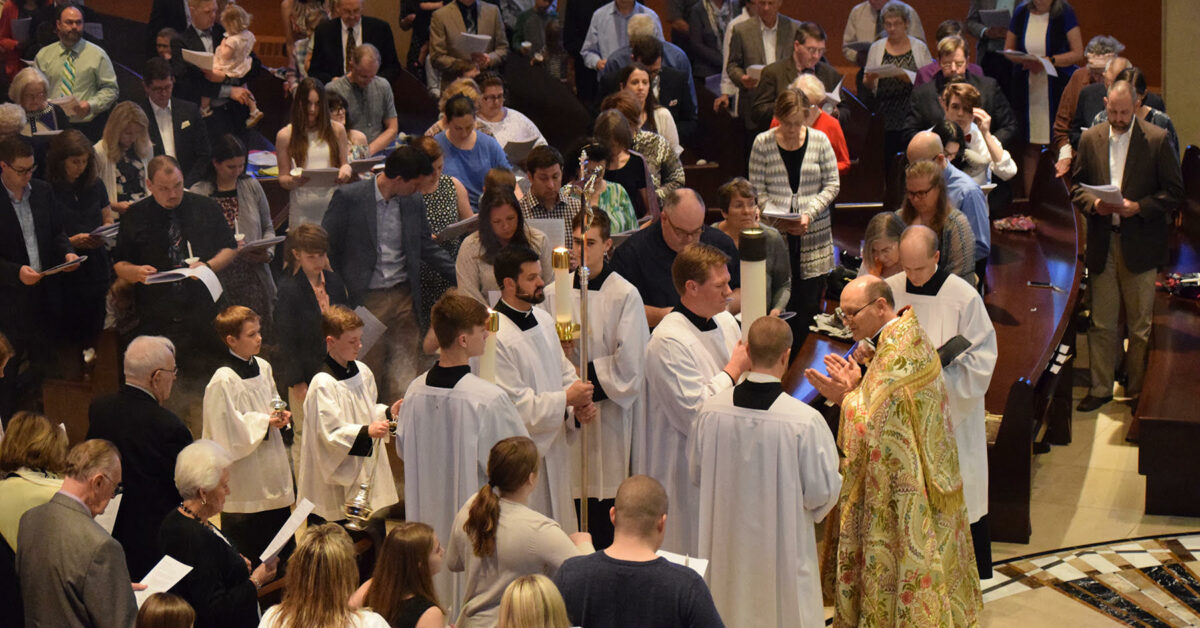Where to Begin? Centering on the Word of God
Two weeks ago (forgive us for the week hiatus) we entered a new series focused “Where to begin with initiating catechumenal practices in your congregation.” I (Kent) offered some insights from the Roman Catholic RCIA about beginning a catechumenal process. Central to those insights was that the catehumenate is about transformation, the transformation of a Christian community from a consumer-oriented, maintenance spiritual life as a congregation into a congregation of intentional, witnessing, living disciples of the Lord Jesus Christ. And a second observation that orientation toward transformation requires vision. As Leisa Anslinger observes in her book A Vision for Conversion: Eight Steps to Radically Change Your RCIA Process (Collegeville, MN: Liturgical Press, 2018), the primary orientation of this vision should be toward “an encounter with Christ and to living discipleship” (2). I observed that the Word of God should play the central role in forming this process and shaping this vision. So what does that mean?
From the outset of initiating catechumenal practices the Word of God in all its forms should be at the center of all practices. This includes the Word of God in all its forms: personal (Christ), proclaimed, and written. The proclaimed and written Word facilitate the encounter with the personal Word, which is the goal. The proclaimed Word is experienced through preaching on Sundays and on other days when worship takes place, in the catechumenal sessions on Sundays and weekdays, and in the mutual conversation between catechumens, the catechumenal staff, and the members of the congregation. The written Word shapes and informs those opportunities for oral proclamation. The written Word should initiate and feed (norm) that oral proclamation within the Body of Christ.
What are the implications of centering the Word of God in catechumenal practices? It means starting with and choosing parts of the written Word that will facilitate the transformative experience for the catechumens and the congregation. Such parts of Scripture would include key passages that enunciate the biblical story such as Psalm 136, Nehemiah 9, Acts 2 and 3 (for a more complete list email me at burresonk@csl.edu) and the synoptic Gospels in general. It entails proclaiming that Word so that catechumens and the congregation can address key questions such as: What story is being told here? Who are the characters in the story? What kind of God do I experience here? Who is Jesus in this story? How do I respond to this encounter with Jesus and who he is? Such questions allow the Word to be proclaimed so that the individual and the community embrace this story as their own account (confession) of who they are, who human creatures are, and where we creatures and the entire creation are headed. Centering on the Word of God entails beginning with the Word in your first instantiation of a catechumenate. You might begin with your elders or church leaders. You would allow them to experience this kind of encounter with the Word before introducing it to new inquirers. This would allow congregational leaders to experience the transformative power of the Word regarding their own identity as disciples and as Christian community. It means that this very basic approach to disciple-making should be at the center of all the gatherings of the congregation, such as at meetings, at social events, at service events, etc…
Where to begin with creating a vision for the catechumenate and the transformation of congregational life? Begin with practices centered on the Word that is focused on the story of the Creator reclaiming his creation and creatures for himself in the Lord Jesus Christ.
